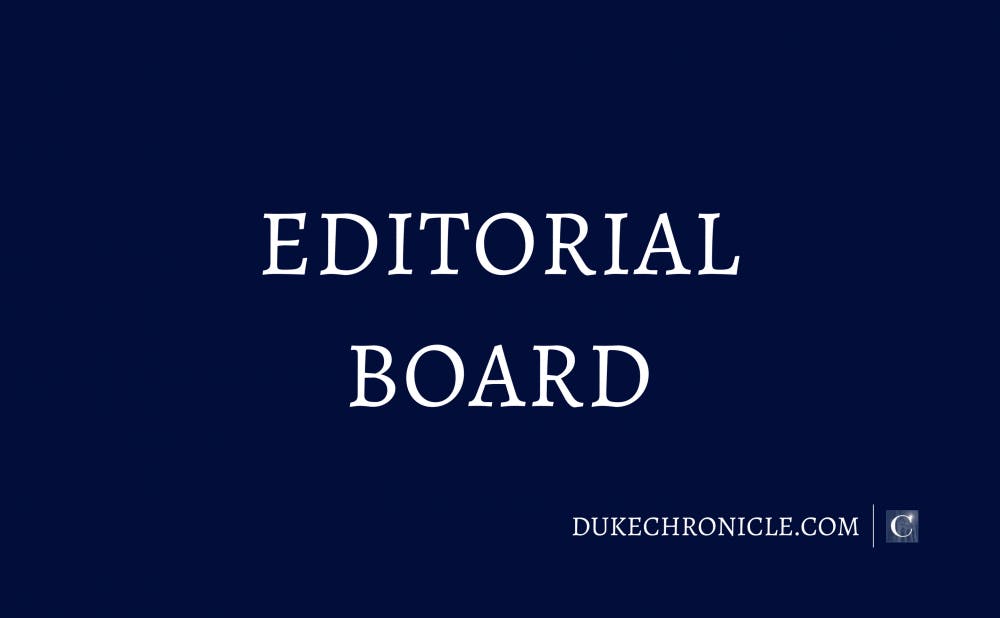At the end of last month, as Duke celebrated achieving a record-breaking $8.5 billion endowment, the Karsh Office of Undergraduate Financial Support sent letters to the families of students on need-based financial aid. These terse letters informed these students that, with the exception of those whose expected parental contribution is $0, Duke would no longer cover the cost of the Student Medical Insurance Plan (SMIP) in its need-based financial aid plans. For affected students, the letter, signed by assistant vice-provost and director of undergraduate financial aid herself, Alison Rabil, suggested two courses of action: to re-enroll in their parents’ plan or find a way out of pocket to cover the cost of a SMIP, which for the 2018-2019 coverage year totaled more than $3,500.
As thoughtful as it may be to continue offering assistance for the neediest students, in reality, students with an expected parental contribution of $0 make up a small percentage of overall students receiving need-based aid. For the remaining students, enrolling in their family health insurance plan is not a reasonable option given that they qualified for the grant in the first place as a result of either having no health insurance when they enrolled or because their health insurance failed to meet Duke’s coverage standards. For many Duke students on need-based aid, this leaves only the choice between loans, or hundreds more hours of work-study—and thus passing up campus experiences that their wealthier peers can enjoy without financial worry.
The significance of health insurance, especially to those students without a great deal of financial security, cannot be overstated. In the United States, medical debt is the one of the leading causes of bankruptcy and can adversely affect credit scores for years. For students from low-income backgrounds whose previous health insurance coverage was spotty or nonexistent, the health plan initially promised by Duke’s aid may have represented the first time they were able to afford routine preventative care or critical, but more expensive procedures. There is also a depressing irony to this decision, made by a university that was founded in part to provide quality, accessible medical care to the surrounding region. In fact, Duke’s mission statement specifically enumerates that “[a goal of the University is] to help those who suffer, cure disease, and promote health, through sophisticated medical research and thoughtful patient care.”
Although the official rationale given for cutting health insurance grants for most students is to change Duke’s policy to be in line with those of “peer universities,” it is worth noting that many “peers” in fact do offer this type of aid. Princeton, for example, continues to offer financial aid to cover the cost of their mandatory health insurance plan. Likewise, Brown not only provides resources to help students afford insurance but also allows students to add dental insurance to their plan—an option not available at Duke.
The seemingly contradictory justification offered by the administration for the revocation of health insurance grants exposes other equally troubling aspects of the decision. Had the change not been reported in the Chronicle, in all likelihood, many students would have remained unaware of the new policy. There was no public announcement made. The change was not included on the most recent financial aid newsletter, and the financial aid office’s website still claims that “if financial aid covered the [cost of insurance], we will do so again this year.” Such opacity has long been a barrier in accessing aid. Students’ EFCs, for example, fluctuate from year to year without any detailed reasoning, and resources available to low-income students remain ill-advertised, leaving aid recipients to rely primarily on information passed-along through word of mouth.
As Duke continues to supposedly commit itself to socioeconomic diversity, it is worth interrogating the extent to which the University has shown itself willing or able to provide for its low income students. In many ways, the revocation of health insurance grants is another in a long line of failures by administrations past and present to demonstrate such a willingness. Rabil ends her letter by encouraging students to reach out with any questions. Perhaps we all should. Because, when it comes to financial aid at Duke, there seem to be many more questions than there are answers, and certainly even fewer meaningful actions.
Get The Chronicle straight to your inbox
Signup for our weekly newsletter. Cancel at any time.

